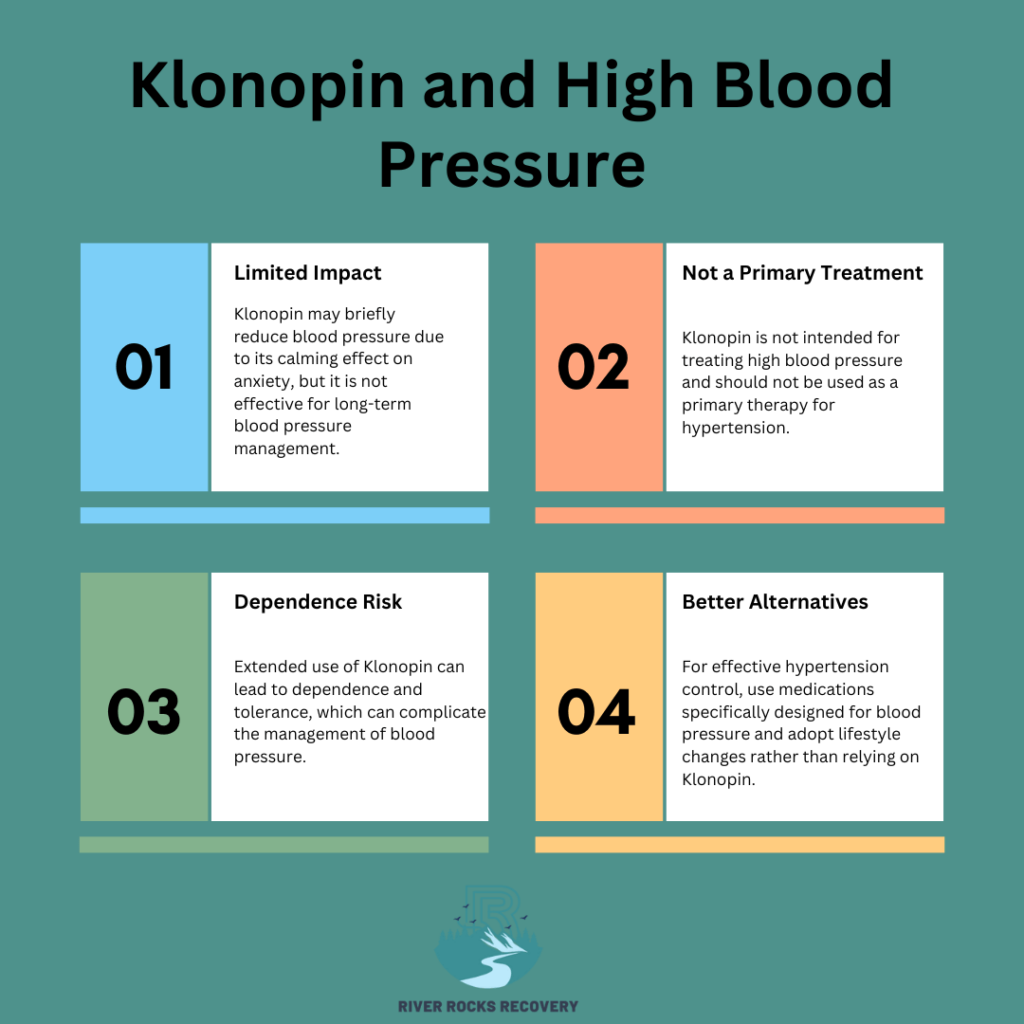Klonopin or clonazepam is well-known for its effectiveness in treating anxiety, panic disorders, and specific forms of seizures. However, its impact goes beyond these conventional applications, particularly in how it interacts with the cardiovascular system.
As more people and healthcare providers investigate the varied impacts of drugs. This, understanding Klonopin’s potential impact on blood pressure becomes increasingly critical.
In this blog, we will investigate the relationship between Klonopin and blood pressure management, and also discuss how this medication may influence those suffering from both anxiety and hypertension.
So, let’s get going!
What is Klonopin and how it works?
Klonopin is the most prescribed medication used to treat conditions like anxiety, depression, and seizures. Klonopin belongs to the benzodiazepine class of drugs, which works in increasing the effects of gamma-aminobutyric acid (GABA), a neurotransmitter that suppresses brain activity.
This has a relaxing impact on the nervous system, lowering anxiety and preventing seizures. While Klonopin’s primary aim is not to control blood pressure, the way it interacts with the central nervous system can have an indirect effect on it.
However, Klonopin is a strong central nervous system depressant, it can cause sleepiness, dizziness, and poor coordination. However, long-term use can result in tolerance, reliance, and withdrawal symptoms if the medicine is abruptly discontinued.
As a result, it is normally prescribed for short-term usage or with close supervision by a healthcare provider. In case, you or someone takes overdoses, addiction treatment programs may work to stop its usage.
How Klonopin Affects the Body
Klonopin acts as a sedative by enhancing the effects of gamma-aminobutyric acid (GABA), a neurotransmitter that reduces brain activity. This calming effect can help alleviate anxiety, muscle tension, and panic attacks. As anxiety can cause temporary spikes in blood pressure, Klonopin may indirectly lower blood pressure by calming the nervous system.
However, Klonopin is not designed to directly target the cardiovascular system, unlike traditional blood pressure medications such as beta-blockers or ACE inhibitors. Its impact on blood pressure is more of a side effect rather than a therapeutic purpose.
Klonopin’s Impact on Blood Pressure
Depending on the patient’s condition and the situation, Klonopin can cause blood pressure to rise or fall. Klonopin can help lower blood pressure in certain people by lowering stress and anxiety, especially in those with anxiety-induced hypertension. Since anxiety and stress are known to raise blood pressure, reducing these symptoms may cause blood pressure to drop as well.
- Temporary Reduction: When taken for anxiety or panic, Klonopin may help temporarily lower blood pressure by reducing stress-related spikes. This is particularly true for individuals who experience high blood pressure as a result of acute anxiety episodes.
- Short-Term Solution: The blood pressure-lowering effects of Klonopin are generally short-lived. It relaxes the body and may cause a temporary dip in heart rate and blood pressure, but these effects wear off as the medication is metabolized.
- Not Suitable for Hypertension: While Klonopin may lower blood pressure in specific cases, it is not suitable for treating chronic high blood pressure (hypertension). Its effects on blood pressure are unpredictable, making it an unreliable option for long-term management.
On the other hand, Klonopin may result in an inconsistent reaction that raises blood pressure. This can happen because of the different ways that the body reacts to benzodiazepines, especially if the drug is abused or if a person becomes tolerant to it.
The Relationship between Klonopin and High Blood Pressure
As you know, Klonopin is not a first-line treatment for hypertension. People whose high blood pressure is mainly caused by stress may find that using Klonopin to manage their anxiety is helpful. It shouldn’t, however, take the place of prescription antihypertensive drugs. It’s crucial to treat Klonopin as an addiction therapy rather than the support for controlling blood pressure.
But what if you don’t stop? It may cause potential risks, such as dependence, withdrawal symptoms, and effects on general cardiovascular health. The situation becomes even worse if you already have cardiovascular disease. So, talking to a healthcare provider can aid the symptoms.
Risks of Using Klonopin for Blood Pressure Management
Using Klonopin to manage blood pressure carries several risks, particularly when used for extended periods:
- Dependence and Tolerance: Klonopin can be addictive, and long-term use may lead to physical and psychological dependence. Over time, users may need higher doses to achieve the same calming effects, which can make managing blood pressure more difficult.
- Rebound Effects: Stopping Klonopin suddenly can cause rebound anxiety and blood pressure spikes, which may worsen symptoms in individuals with existing hypertension.
- Side Effects: Common side effects of Klonopin include drowsiness, dizziness, and impaired motor coordination. These side effects can interfere with daily activities and may create additional health concerns, especially for individuals managing blood pressure.
- Interaction with Other Medications: Klonopin can interact with medications commonly used to treat hypertension, potentially reducing their effectiveness or increasing the risk of side effects.
Need help? Get in touch with River Rocks Recovery!
The connection between Klonopin and blood pressure control is complex and varies from person to person. While Klonopin may help people with anxiety-related hypertension, it is not a substitute for standard blood pressure medications.
Patients should consult with their healthcare practitioner about their complete medical history and treatment goals to establish the best way to treat anxiety and blood pressure. However, if still, you still cannot leave this medication, this is a sign of addiction. With that said, get in touch with River Rocks Recovery and find the best addiction therapy programs that suit your needs and budget.
At River Rocks Recovery, you will find a new path to live happily and of course without medications. To know more, call us now at (888) 905-6281!
FAQs on Relationship Between Klonopin and Blood Pressure Management
Is Klonopin primarily used to treat high blood pressure?
No, Klonopin is not primarily used to treat high blood pressure. Its primary uses are for anxiety disorders and seizures.
Can Klonopin have any effect on blood pressure?
While not its primary intended use, Klonopin can potentially have some effects on blood pressure. In some cases, it may lower blood pressure, especially in higher doses or when combined with other medications. However, it’s important to consult with a healthcare professional for personalized advice.
Can Klonopin cause low blood pressure?
Yes, Klonopin can cause low blood pressure, especially when standing up suddenly (orthostatic hypotension). This can lead to dizziness or fainting.
Can Klonopin be used to treat high blood pressure?
While not its primary indication, Klonopin might be used in combination with other medications to treat high blood pressure in certain cases. However, it’s not a first-line treatment for hypertension.
When should I consult a doctor about using Klonopin for high blood pressure?
If you have high blood pressure and are considering using Klonopin, it’s crucial to consult with your healthcare provider. They can assess your individual situation, evaluate the potential benefits and risks, and determine if it’s an appropriate treatment option for you.





























